The Pretender's Lady Read online
Copyright © 2015 by Alan Gold
All rights reserved. No part of this book may be reproduced in any manner without the express written consent of the publisher, except in the case of brief excerpts in critical reviews or articles. All inquiries should be addressed to Yucca Publishing, 307 West 36th Street, 11th Floor, New York, NY 10018.
Yucca Publishing books may be purchased in bulk at special discounts for sales promotion, corporate gifts, fund-raising, or educational purposes. Special editions can also be created to specifications. For details, contact the Special Sales Department, Yucca Publishing, 307 West 36th Street, 11th Floor, New York, NY 10018 or [email protected].
Yucca Publishing® is an imprint of Skyhorse Publishing, Inc.®, a Delaware corporation.
Visit our website at www.yuccapub.com.
10 9 8 7 6 5 4 3 2 1
Library of Congress Cataloging-in-Publication Data is available on file.
Cover design by Yucca Publishing
Print ISBN: 978-1-63158-048-2
Ebook ISBN: 978-1-63158-058-1
Printed in the United States of America
The Skye Boat Song
Written by Sir Harold Boulton (1859–1935)
Speed bonnie boat, like a bird on the wing,
Onward, the sailors cry
Carry the lad that’s born to be king
Over the sea to Skye
Loud the winds howl, loud the waves roar,
Thunder clouds rend the air;
Baffled our foes stand on the shore
Follow they will not dare
Though the waves leap, soft shall ye sleep
Ocean’s a royal bed
Rocked in the deep, Flora will keep
Watch by your weary head
Many’s the lad fought on that day
Well the claymore could wield
When the night came, silently lay
Dead on Culloden’s field
Burned are our homes, exile and death
Scatter the loyal men
Yet, e’er the sword cool in the sheath,
Charlie will come again.
Prologue
THE ISLAND OF SOUTH UIST IN THE OUTER HEBRIDES
NOVEMBER 1737
She stood tall on the rock, her strong legs wide apart to brace herself against the biting evening wind. Her hands were clenched in defiance on her hips, her tartan skirt whipped by the strengthening flurries, her Clan Macdonald scarf and beret proudly proclaimed her heritage.
She stood silently in contemplation, breathing deeply as she prepared to address the multitude. They had gathered before her, thousands upon thousands of her countrymen and women. Although she was only fifteen years of age, she knew that her voice mustn’t fail her in the hour of her calling; she’d been rehearsing the words for days, and now was the moment when she would cause the people of Scotland to rise up against the German kings of England.
Despite the mounting howl of the wind presaging a winter storm, she knew that if her words were to inspire, she must be audible to the crowd. She must shout to be heard above the roaring sea and the pounding waves. Only by being heard, would her words wash over the throng, to elevate and embolden them by her passion.
She looked at the assembled faces, row upon row of proud Scotsmen and women: Macdonalds and McLeans, Stuarts and McMillans, McAdams and McGregors. Rugged men and beautiful women in their traditional clan tartans, a vast army with swords and shields ready to defend Scotland with their last drop of blood.
Tribal leaders who hadn’t spoken to each other in generations had all gathered on a sandy beach on a remote island to hear the words that young Flora would use to rouse the entire Scottish nation and free them from the oppression of the evil king in London.
And so she began, loud and confident, proud and magnificent. “Hear me well, my countrymen and women. Listen to my voice, for I speak to you of great and important things. William Wallace, our leader, our national hero, won a great victory at the Battle of Stirling Bridge fought exactly four hundred and forty years ago. Vastly outnumbered, Wallace and Moray routed the English Army led by the monstrous Earl of Surrey. The blood of the English glistened on their swords and is still fresh despite all the centuries that have passed; centuries in which we Scots have been enslaved by the English.”
She could see women beginning to weep, and men, strong and robust men, trying to mask their tears. But she had to continue.
“And just as our greatest hero led our nation to victory, so too will I, Flora Macdonald, lead our armies and undo the terrible damage being done to our proud Scots heritage by King George, who sits on his throne in London. Yes, I may be but fifteen years old, but only I, Flora Macdonald, can save you from the monstrous injustice and evil that these foreigners have brought to our sweet land . . .”
Suddenly, a voice from the bowels of hell drowned out her rallying cry. “Where in the name of sweet Jesus are ye, Flora Macdonald, you numpty scunner. Didn’t I call ye not fifteen minutes ago to come back and prepare the hame for the daddy’s supper?”
Her mother stood in the doorway of their nearby croft, screaming at her, loud and angry above the screech of the gulls. She realized that her daughter was again play-acting. “Dear God, what are you doing on that rock? Ye’ll be the death of me. Come inside this instant or I’ll tan your wee cunny, you pot-addled wastrel.”
Her mother disappeared back into the house. Furious at being prevented from rallying the Scottish people to her cause, Flora jumped down from her platform, making nearby bemused gulls, razorbills, and gannets scatter and launch themselves into the wind and sea spray.
How dare Annie McDonald interrupt her! Didn’t her mother know that today was one of the most auspicious of days for Scotland? She’d been practicing her William Wallace speech for a week now, and just as she was about to get to the highpoint, rousing the assembled millions to a fever of zeal, she had to retreat to prepare the house for her father’s return from his work. But what good was food and drink when the Scottish people were trodden down by the heel of the English soldiers?
Followed by her audience of pliant dogs, Flora walked the short distance along the shoreline until she reached her home. She opened the door and was greeted by the smell of freshly baked griddlecakes and oatmeal. And because it was a Saturday, her stepfather had slaughtered a lamb, which meant that tonight’s stew would contain a choice cut of meat. She smiled. Saturday’s supper was the best of the week, and they’d have some more money when Hugh had sold the rest of the beast to the nearby townsfolk.
Flora stood at the door, and watched her mother, Annie, red-faced from the heat of the caldron, busying herself in preparation for the return home for the night of the rest of her family. Annie felt a sudden squall of cold November air enter the house and looked around to see her splendid daughter framed in the semi-darkness. She straightened her back and walked to the table with a plate of freshly baked bread.
“Lass,” said her mother, as the Flora began to busy herself preparing the house for nighttime, “why do you do it?”
“What?” asked the young girl as she helped her mother set the table with spoons, bowls, and knives for her brothers, her parents, and herself.
“You know what! Why do you talk to yourself? You’re always going off to the sea and standing on some rock and shouting at the waves like some moon-cranked loon. What do you say? Who do you think you’re talking to?”
“Nobody.”
“Then why, girl? As a bairn, you were always been so full of life and fun, but now you’re breaking down the doors of womanhood, you don’t play with your wee friends anymore. Time was, you’d run naked down to the sea with your lads and lassies at the drop of a hat and the lot of you behaved like draggie rooks. But now,
there’s nary a friend drops by and all ye do is play outside alone, pretending that you’re queen this or princess that.”
“It’s what I like to do, mother,” she said.
“But darlin’, you’re losing all your friends. They’re off playing and you’re all alone with your play-acting. I don’t know what’s to be done.”
“I do have friends. Lots of friends. We sit and talk when we don’t have chores. But . . .”
Before Flora could continue, the door to the croft suddenly opened, and her stepfather, Hugh, walked in. Normally a man who greeted the evening with hugs and kisses for his beloved family, on this evening, he was quiet and simply nodded to his wife and Flora.
“You’re troubled, Hugh! What’s happened?” asked Annie.
Hugh sat in his chair, the straw-filled cushions bursting and in urgent need of repair and refilling. Flora brought him his two drams of whisky and sat by his side to warm herself by the fire. Still not answering, Hugh reached over to the griddle hanging above the nook and took one of the twelve cakes warming there. He bit into it, washed it down with the whisky, and nodded to Flora, who immediately brought over the flask and poured him another two drams.
“For God’s sake, husband, what’s happened? You’re frightening me.”
“The Queen is dead. The terrible news came through by dispatch this afternoon,” he told her.
Flora and her mother looked at each other. Both remained silent, trying to understand why such news would affect Hugh so badly.
“That’s terrible,” said Flora feebly. “But why is it terrible, father?”
“You know how dependent that fool down in London was on Caroline. She was the only good mind in the whole of the court. Without her, the king will be lost and prey to all the knaves and scoundrels who’ll want to profit from his adversity.”
Flora nodded. “That is indeed terrible. But why is it terrible for us?”
Hugh sighed. “Don’t you see? King George hates and detests his son Frederick, who’s next in line. Frederick is a useless scoundrel. He’ll conspire, probably with Sir Robert Walpole to replace George and rule in his place. My betting is that the prime minister will convince the Parliament that George is incapable of ruling alone and will demand a Regency, which will effectively put Walpole in charge of the whole country as well as the throne. And that’ll make the prime minister the most powerful man in the land. He’s the most corrupt man in all of England and Scotland, and sure as chickens lay eggs, he’ll come up here looking for new sources of wealth. Scotland will be raped afresh by Walpole and his minions, for if he takes control over the king and the government of England, it’s us who’ll suffer.”
“But won’t the Parliament stop him?” asked Flora.
Hugh smiled and stroked his stepdaughter’s hair. “The king’s a ninny and Walpole and his cronies have just been waiting for the Queen to die so that they can pillage Scotland anew. It was only Caroline whispering into the king’s ear that stopped the nonsense going on. But with Caroline now gone, God only know what’s going to happen.”
“Then surely now is the time for us to fight against English rule, father,” said Flora. “Like William Wallace four hundred and fifty years ago, we must rise up and march to do battle with the English. We must sharpen our swords and prepare . . .”
“Don’t talk molly mush, girl,” said Hugh. “We’re not going to rise up, and we’re not going to raise an army. And stop mentioning William Wallace, if you please. He caused the deaths of thousands of brave Scotsmen, and for his service to his country, he was hung, drawn, and quartered. I don’t fancy that death for any of my friends. If we even raise our voices, the English will come marching up here with an army fifty thousand strong, with cannon and artillery, with horses and God only knows what else. We’ll be slaughtered. No, our only hope is that George remains sane and doesn’t turn into a lally brain.”
Hurt by his rebuke and the repudiation of her hero, Flora stood, and walked in silence over to the kitchen area to carry the stew, oatmeal, and other food to the table. But one day, she vowed, she’d prove her father wrong. One day, he would apologize and admit that when Scotland was at its lowest ebb, when all was hopeless, it was Flora Macdonald who rose up and led her people into a sunny and free upland. One day.
Part One
Chapter One
THE ISLAND OF ERISKAY IN THE OUTER HEBRIDES OF SCOTLAND
JULY 1745 – EIGHT YEARS LATER
It was all his. By birth. All of it. The Prince of Scotland braced his body against the ebb and flow of the waves as the small rowboat plied a path between the underwater banks of kelp and seaweed. He stared closely at the shoreline of the island, momentarily visible now that the early morning mists were rising to reveal silver-gray rocks, scrub grasses, and desolate hills. The morning winds were not yet sharp enough to sweep the mist with its heavy stench of salt and the reek of rotting sea grasses. He shivered in the chill of the morning air, then glanced into the water and shuddered again at the sight of a glistening field of kelp, a meadow of drowned corpses, dead fingers commanding the tide to wave him on, then back . . . forward then retreat . . .
As the land drew into sharper focus, huge white-gray boulders of granite formed an impenetrable barrier along the hilltops. Again, he shuddered. His father would have quipped that somebody had just walked upon his grave. The stench of seaborn rot, the drowned kelp, and thoughts of the peril he was in made the young man shudder once more, suddenly overwhelmed by feelings that had been growing in him throughout the journey from France—that his mission was doomed from the beginning, and a rational person would return to the sunny uplands of Umbria and Tuscany and the naked breasts of wholesome girls and the warmth of the Roman air. Here, in Scotland, that same deity who’d encouraged him in his mission had changed his tune. Charlie was suddenly beleaguered by the feeling that the deity was telling him not to land.
Born in the frenetic mania of Rome and an intimate of the cities of Italy and France, any cosmopolitan man would have been disheartened by the look of desolation before him. This was no Tuscan countryside with its hillsides corrugated by precise rows of fertile vineyards, nor was it the sunny uplands of the Loire with its rich and fruitful soils and grandiose castles, its gentle valleys, and charming towns. This was a land devoid of people and animals, a rock abandoned by God and all his angels.
But the Prince of Scotland was no ordinary man, and despite the cold and the disconsolate nature before him, he forced his mood to change so that his companions would perceive nothing of his concerns. A leader’s insecurity spread like a contagion and he knew he must avoid any semblance of doubt at all costs. As his boat drew closer and closer to the shore and his first footfall on his realm, he smiled and nodded to those who looked up at him.
The rowboat’s keel ploughed the field of water grasses, and he listened to the voice of his new land. The only sound that could be heard was the screaming of gulls and the sea’s gentle susurration as its foam grasped at the sand in defiance of the receding water. Pitching forward when the boat dug a furrow into the beach, the Prince of Scotland saved his dignity and himself by grasping onto the outstretched arms of his courtier, Achille della Valle. The prince crossed himself, bowed his head in hope of the Lord’s blessing, and jumped into the water, walking the few steps up the beach to stand on a tussock of grassy land.
Charles Edward Louis John Casimir Sylvester Maria had been rudely dubbed Bonnie Prince Charlie when introduced to the Scottish guide who boarded his ship in France, the Doutelle, in order to guide it safely through the narrows and shallows of the Outer Hebrides Islands. Now he stood for the first time in his life on the land that he should, by rights, have inherited at birth. The fetid sea behind him, Charles breathed deeply of the warming air and smelt the freshness of the earth. From the stability of the land, even the spume of the waves and the smell of the salt air were now pleasing. He said another prayer to the Almighty who had allowed him to meet this day.
He stood silent, looking up
at the hills that rose above the coastline, and heard his small party unloading the boat and carrying its contents up the shore.
“Gentlemen,” he shouted above the shrieks of the seabirds, “there’s much time for work, but little enough time to thank the Lord God for delivering safely a Stuart back to his rightful kingdom. Come and pray with me awhile and sing an orison to the Maker of all Things. Raise you voices, gentlemen, and join me in singing Benedictus qui venit in nomine Domini . . .”
The eleven men who had accompanied the prince fell to their knees, and the royal priest and chaplain began the chant.
Not two minutes into the song, the party was interrupted by a crude shout from the nearby hillcrest overlooking the beach. In surprise, they raised their bowed heads and saw a huge bearded middle-aged man of fierce mien, wearing the Macdonald tartan, standing with legs spread apart, hands on his hips, looking at them in bemusement.
“And what in the name of God in his heavens do ye think you’re doing here on my land? Are ye smugglers? Shipwrecks? What? Speak before I come down there and separate every man jack of you from your manhood . . .”
In a pre-arranged subterfuge, Achille della Valle shouted back in broken English, “Sir, we are Irishmen accompanying our priest to bring enlightenment in the name of the Lord to your Island’s people.”
The Macdonald stood immobile looking down at them from his vantage point on the crest but began shaking his head in disbelief. Then he burst out laughing. “Away and boil your head, you mutton mouthed arse fiend. You’re no more Irish than I’m a Chinaman. You’ll be Charlie, the young chevalier, here from France. You’re the boy who calls himself heir to our throne.”
Prince Charles, stunned at the man’s audacity, mortified that he’d been so easily discovered, got off his knees and stood tall and proud before the man. “And whom do I have the honor of addressing?” he shouted.
“Alexander Macdonald of Boisdale speaks with you. And where is your army? You were supposed to be bringing ten thousand Frenchies. When will they be landing? I see none of their ships?” The Macdonald took gigantic strides down the dune until he arrived at the beach and stood proud before the landed party.

 Birthright
Birthright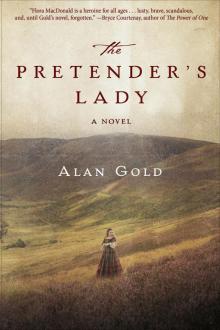 The Pretender's Lady
The Pretender's Lady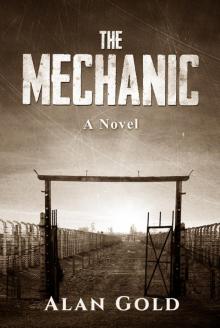 The Mechanic
The Mechanic Bloodline
Bloodline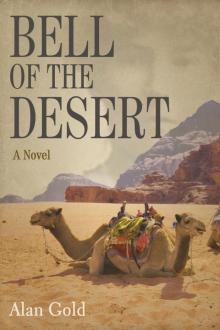 Bell of the Desert
Bell of the Desert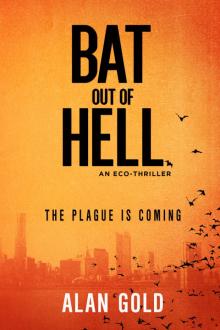 Bat out of Hell
Bat out of Hell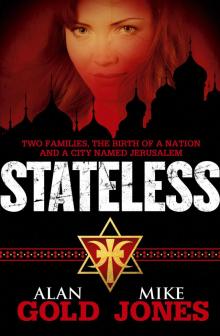 Stateless
Stateless